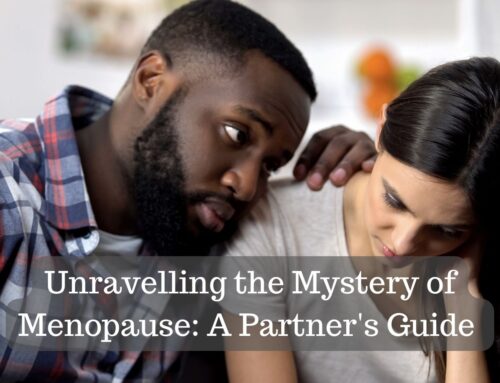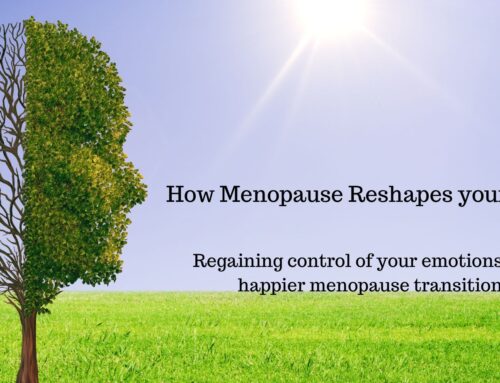Don’t Let Menopause Break Your Relationship; Be The Support Your Partner Needs.”
As a woman in the throes of menopause, I know first-hand the seismic impact it can have on us and those we hold dear. The once vibrant and passionate woman I used to be has been replaced by an irritable and sleep-deprived shell of myself. Menopause changed me from a woman who loved sex, intimacy and being level headed to someone who elbowed my husband in bed because he tried to get it, to hating his heavy breathing because I could not sleep, hating cuddles because I was sweaty and uncomfortable. But through it all, my husband has been an unwavering pillar of support me with his patience and love. Without his understanding, I don’t know how I would have coped. He saw the pain and frustration etched on my face and knew that something was wrong. And he stood by me, every step of the way, as I sought out the help and support, I needed. Through our journey together, he’s learned more about the impact of menopause than he ever thought possible, and has become an advocate for supporting partners going through this tumultuous time. Because let’s be real, menopause doesn’t just affect the person experiencing it. It ripples out, touching every aspect of our lives and relationships. But with the right support, we can weather the storm and come out stronger on the other side.
Menopause is a natural biological process that affects all women at some point in their lives. It typically occurs between the ages of 45 and 55, but can also occur earlier or later. Menopause is marked by a decline in the production of the female hormones, estrogen and progesterone, which can lead to a range of physical and emotional symptoms. These symptoms can put a significant strain on a woman’s relationship with her partner, and can even lead to divorce.
Studies have shown that divorce instigated by women is higher during the menopause period due to a lack of understanding and support from their husbands. This can be a difficult and confusing time for men, as their partners may experience a loss of libido, mood swings, irritability, fatigue, and a general lack of interest in things they used to enjoy. Without understanding these changes, men may become frustrated, resentful, or even withdraw from the relationship. Therefore, it is essential for men to educate themselves about this phase and provide the necessary support for their partner.
In this blog post, we will discuss five tips for men to support their partner through the menopause phase.
Be understanding and patient
Menopause can be a challenging time for women, and it’s essential for men to be understanding and patient. Do not judge or compare; menopause symptoms can vary from woman to woman, and some women may experience more severe symptoms than others. Therefore, it’s important to listen to your partner’s concerns, validate their feelings, and avoid taking their symptoms personally or dismissing them.
Educate yourself about menopause
To provide the best possible support for your partner, it’s crucial to educate yourself about menopause. Read up on the symptoms, causes, and treatments of menopause, and familiarize yourself with the different stages of menopause. This will help you understand what your partner is going through and how you can best support them.
Communicate openly and honestly
Communication is key when it comes to supporting a partner through menopause. Encourage your partner to share their feelings and concerns with you, and be open and honest about your own feelings. Let your partner know that you are there for them and that you want to help them through this phase.
Offer practical support
There are many practical ways that you can support your partner through menopause. This might include helping with household chores, cooking meals, or taking care of the kids to give your partner some time to rest and relax. It’s essential to offer your partner support and to be there for them during this challenging time.
Be supportive and present
Finally, it’s essential to be supportive and present during this phase. This might mean attending doctor’s appointments with your partner, offering a shoulder to cry on, or simply being there to listen and provide comfort when needed. Remember that menopause is a natural process, and with the right support, you and your partner can navigate this transition together.
In conclusion, menopause is a challenging time for women, but with the right support from their partners, they can get through it with greater ease. By being understanding, patient, communicative, and supportive, men can help their partners navigate this transition and emerge stronger and healthier on the other side. Men owe it to themselves and their relationship to educate themselves about this phase and provide the necessary support for their partner.







Leave A Comment